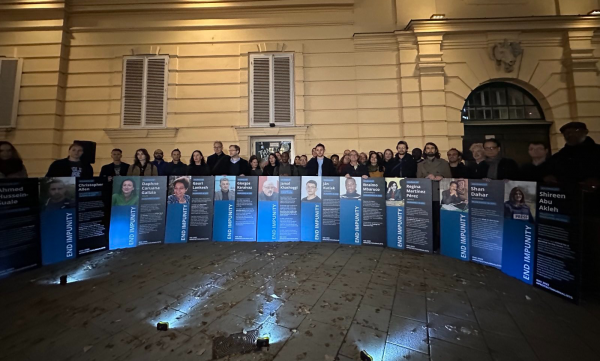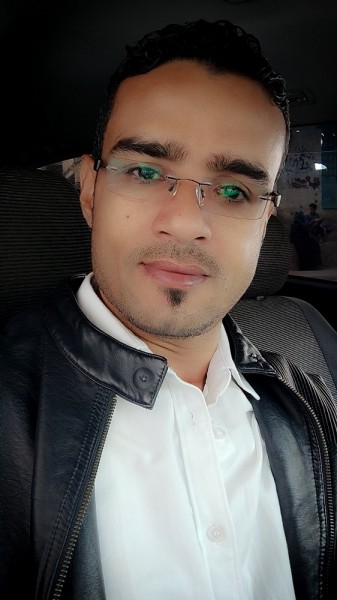Yemeni journalist and Al-Qaeda analyst Abdulelah Haidar Shaia was released on Tuesday, two weeks after he was handed a five-year prison term for allegedly recruiting for Al-Qaeda and taking photos of potential Al-Qaeda targets for the Islamist terrorist group, reports said.
He was released on a presidential order, according to news reports, although it was not immediately clear why he was freed. His release came a day before President Ali Abdullah Saleh announced that he would not run for re-election when his term expires in 2013, a decision that is believed to be linked to protests calling for economic and political reform that began after Tunisians successfully overthrew dictator Zine el-Abidine Ben Ali.
The Yemen protests were marred by violence against protesters, including journalists, who were reportedly harassed during demonstrations in the capital city of Sana’a.
“We welcome the release of Abdulelah Haidar Shaia from jail yesterday,” said IPI Acting Director Alison Bethel McKenzie. “We call on the Yemeni authorities to cease the use of illegal special courts to sentence reporters to prison simply for doing their job, and demand an end to the harassment of journalists covering protests.”
Haider Shaia was sentenced on 18 January to five years in jail by a Sana’a based terrorism court for allegedly supporting Yemen-based Al-Qaeda members, according to IPI research at the time. He was found to be responsible for recruiting for Al-Qaeda, and of collaborating with the radio cleric Anwar Al-Awlaqi, a US-born radical cleric whose sermons are said to have inspired a terrorist attack in the US.
“He was imprisoned because of his outspoken opinions opposing the regime,” Nadia Al-Saqqaf, editor in chief of the Yemen Times told IPI at the time. “He was always on the red line. I think he was used by the government as an example with the purpose to scare the rest of the media.”
Shaia was abducted by security agents and interrogated for several hours in July 2010, before being released, as IPI reported at the time. He has been in custody since August, and one of his lawyers, Abdel Rahman Barman, has reportedly said that his client was visibly tortured.
Shaia’s legal team had also argued that the terrorism court was illegal under the Yemeni constitution, which explicitly prohibits special courts. A special Press and Publications Court, which was established in 2009 and has been a forum for the jailing of journalists since then, has been criticised for the same reason.
Believing the court to be illegal, Shaia refused to file an appeal and didn’t attend several hearings, instead demanding that the judge order the arrest of those responsible for his abduction and torture. These requests were denied.
“He tried to challenge the whole system alone,” Al-Saqqaf said. “I think he tried to make a statement in order to defend himself, but he was not given the chance by the government.”
The Yemeni syndicate organized a protest outside the court, claiming it was not a fair trial and that the sentence was a threat to freedom of speech in the country, Shatha Al-Harazi, a reporter for the Yemen Times, told IPI at the time.
Shatha added that officers from the HOOD Human Rights Organisation had told her that every time Al-Qaeda wanted to bring news to the public they would try to contact Shaia. “For him it was a great scoop, but he was just doing his journalistic job, he was neutral,” she said. “He was not a spokesperson for Al-Qaeda.”
***
Update: Despite the order for Shaia’s release, the journalist remains in jail following concerns from the United States about his links to Al-Qaeda.


